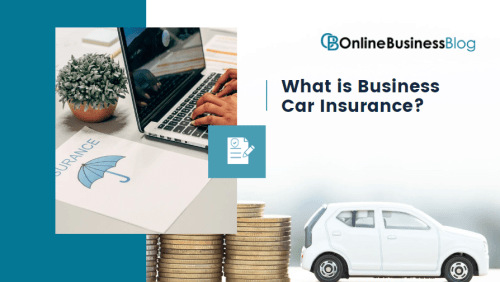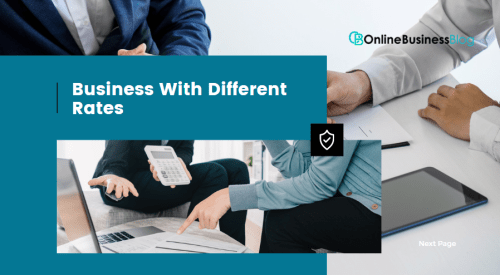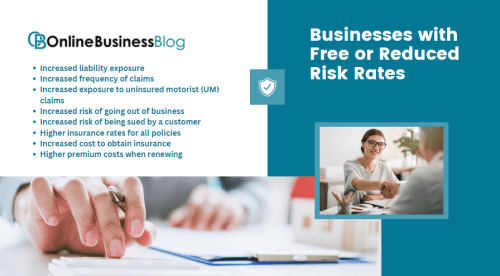Post Contents
Business car insurance is one thing that many businesses skip over when budgeting for their company. When you’re just starting and working with a smaller budget, it can be difficult to understand how much business car insurance will cost. After reading this article, you’ll know how the price of business car insurance is determined and how much extra cover you may need.
What is Business Car Insurance?

Business car insurance is a form of insurance that is specifically tailored for businesses. It provides coverage for vehicles used in business, including rental cars and trucks. Business car insurance can also cover accidents that happen while the vehicle is being used in business.
One of the main benefits of business car insurance is that it can provide coverage for vehicles that are not owned by the business. This can be important if the vehicle is leased or borrowed from a third party. Business car insurance also offers protection against losses due to collision, theft, and other types of accidents.
There are a few things to keep in mind when deciding whether or not to purchase business car insurance. First, it’s important to understand how much coverage you need. Second, review the policy conditions carefully to make sure you’re fully protected. Third, make sure you have a valid proof of insurance whenever you drive your business vehicle. Finally, never underestimate the importance of having proper car insurance – even if your vehicle isn’t used for work-related activities daily.
How Much Extra Does Business Car Insurance Cost?
If you own a car and run a business, you may be wondering how much extra car insurance your business needs. The answer largely depends on the type of business you run and the coverage you carry. But, businesses with more assets and employees are likely to need more coverage than those with fewer assets and fewer employees.
The amount of coverage your business needs will also depend on the location where you operate. If you have a commercial location that attracts a high volume of traffic, you may need more comprehensive coverage than if you only operate out of your home.
If you are not sure how much car insurance your business needs, talk to an agent at a reputable insurance company or review policies offered by different companies. Just be sure to ask about discounts for businesses and to review what type of coverage is included.
Businesses with Different Rates

One of the biggest factors that go into business insurance rates is the type of business. Some businesses have more expensive rates than others simply because they are considered higher risk.
For example, a business with employees who drive their cars to work would be considered high-risk and would likely pay more for car insurance than a business with fewer employees who rely on company vehicles. Similarly, a small business with only one vehicle might have to pay more for auto insurance than a larger business with several vehicles.
Another factor that can influence car insurance rates is the location of the business. Businesses in high-crime areas tend to pay more for insurance than those in low-crime areas. And businesses in states that have mandatory liability insurance laws must also pay an additional fee for car insurance coverage.
Some special considerations should be made when calculating business rates. For example, a business with a fleet of vehicles may have to purchase separate auto insurance policies for each vehicle, even if the vehicles are all owned by the same company. This is because each policy will cover different risks associated with the vehicle.
Businesses with Free or Reduced Risk Rates
Many businesses have reduced or no risk rates for vehicle insurance. This can be a great deal for the business, but it’s important to be aware of the potential costs.
Here are a few things to consider,

Increased liability exposure: A business with a high-risk policy may be
more likely to experience an accident that increases its liability. This could lead to higher premiums and/or increased coverage needs.
Increased frequency of claims: A business with a high-risk policy is more likely to file claims and incur expenses related to accidents, such as property damage, medical expenses, and lost time from work. This could lead to higher premiums and/or increased coverage needs.
Increased exposure to uninsured motorist (UM) claims: A business with a high-risk policy is more likely to be involved in an accident with an uninsured motorist (UM). If an UM claim is filed, the business could end up paying out of pocket for damages and injuries, which could increase premiums and/or coverage needs.
Increased risk of going out of business: A high-risk policy can significantly increase the likelihood that a business will go out of business in the event of an accident that results in a claim. A business that is out of business cannot pay claims and will be subject to a lien on its assets in the event of unpaid judgments or lawsuits.
Increased risk of being sued by a customer: A high-risk policy can increase the likelihood that the business will be sued by a customer for an accident claim because it increases the potential for litigation related to motor vehicle accidents.
Higher insurance rates for all policies: Certain types of coverage increase rates across the entire risk pool. For example, Medical Payment Coverage (MCP) is considered a deductible-type policy; therefore, if you have $1 million worth of coverage under an umbrella policy, your overall premium may increase by as much as 20% because of MCP coverage. You may also pay a higher premium for excess covered liability or commercial umbrella coverage, which increases rates across the entire risk pool.
Increased cost to obtain insurance: When you purchase an uninsured motorist policy, your claim is paid out of this coverage. If the damages exceed $100,000 and there is no other form of coverage in place, you will be liable for the full amount if you are sued by a customer who has an accident with your vehicle and does not have insurance.
Higher premium costs when renewing: The cost to renew an existing policy may also increase if your business has more than one policy that provides for different types of coverages (liability, medical payments, etc.)
Conclusion
When it comes to car insurance, the amount you are required to pay is usually based on your vehicle’s make and model, as well as how many miles you have driven. However, there may be occasions when you are asked to add an additional premium – this is especially common if you drive a high-value car or motorcycle. If you find yourself with extra expenses related to car insurance, don’t hesitate to get in touch with your insurer and ask what they would recommend. You could save yourself a lot of money by speaking with them early in the process.


